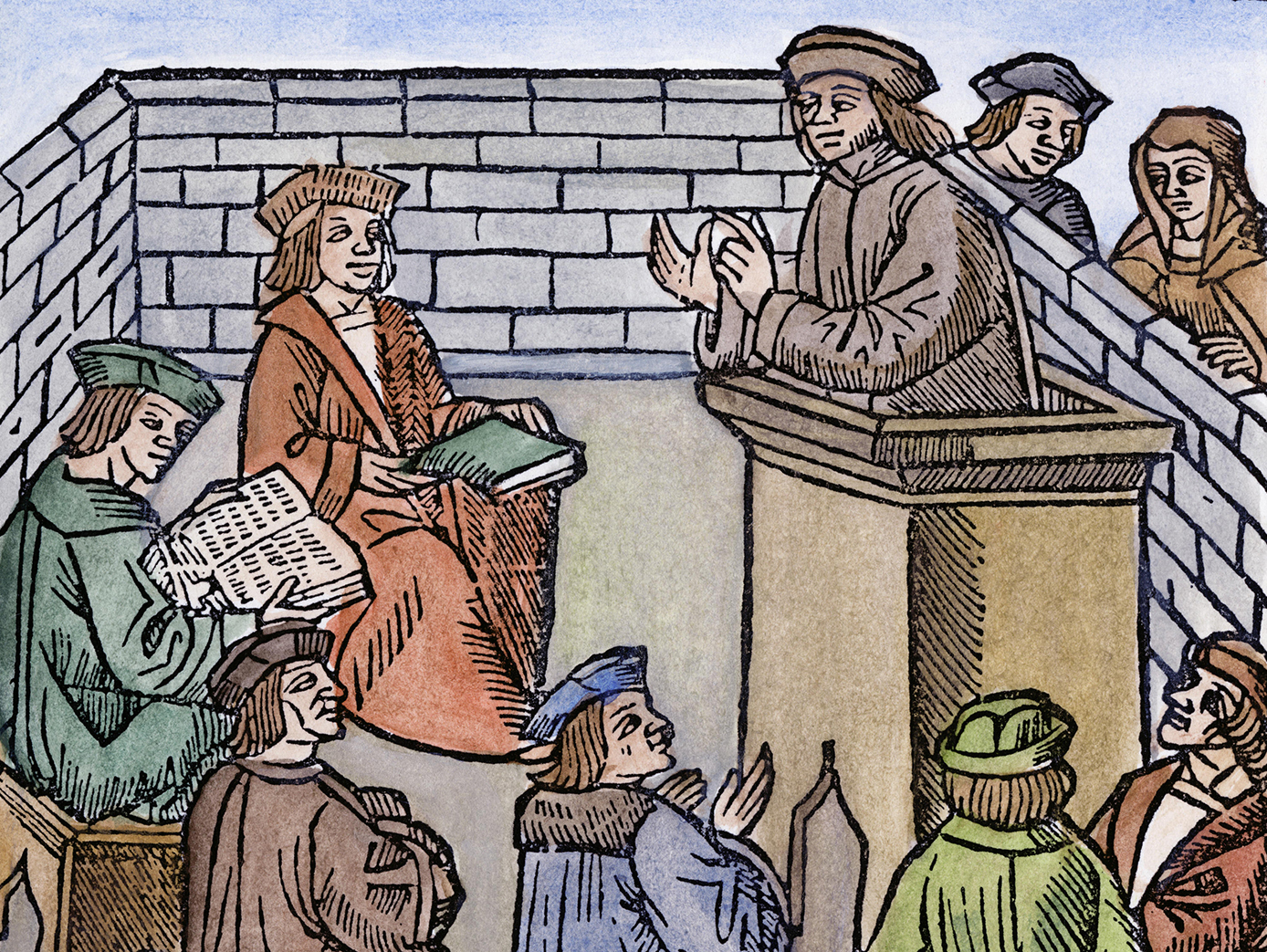4 Remain in me, as I also remain in you. No branch can bear fruit by itself; it must remain in the vine. Neither can you bear fruit unless you remain in me.
5 “I am the vine; you are the branches. If you remain in me and I in you, you will bear much fruit; apart from me you can do nothing.
John 15:4-5
In the Statutes for the University of Paris by Robert de Courçon in 1215 there were many things that I learned and that were interesting about how they ran the school. There were so many rules, regulations, and restrictions that they put in place. Something that I found interesting was that you were not lecture in the arts until you were 20 years old and listened in the arts for 6 years and you could not lecture in theology until you were 35 years old, studied for 8 years, and listened in theology for 5 years. Something that I learned was that they had specific rules for what they could read on feast days (which was about 100 days of the year), what they could wear, and how they attended a master or student funeral. On the days of Feast nothing was allowed to be read except for thing on subjects (philosophy, geometry, music, etc.) and a couple other things. On those days’ books of Aristotle, the doctrine of master David de Dinant, and Maurice of Spain were strictly forbidden. Something else I found fascinating was that no master who lectured in the arts were allowed to wear anything except a black cope that reached down to at least his heels and a pallium. But he was not allowed to wear embroidered shoes or anything with long bands. The last thing that I found interesting/ I learned from Courçon was the procedure for when either a student or master died. If a student died, one half of the masters could go to the funeral, the other half could go to the next one, and they had to stay till the burial was completed. When a master died, all the masters had to go to the vigil and each one had to read the psalter. They would have to remain in the until at least midnight and on the day of the burial no one could lecture or dispute.
There were a couple things that I learned/found interesting in Innocent III: Sermon for the Resurrection of the Lord. One thing I learned was that there are three lives: the lay, the regular, and the clerical, with laymen being those with great labor and hardships, regular or religious are those who abandoned secular occupations, and the clerics are those who are both lay and regular. Something I found interesting about that way that the author used Noah, Daniel, and Job as examples of clergy, religious, and laity. Another thing I learned from the author using the verses Mark 16:1 and Song of Songs 4:16 was that the spices represented good works, the north wind is cold and symbolizes the devil while the south wind is warm and signifies the Holy Spirit, and the garden represents the soul.Something else I found interesting was that the author said that the Lord excepts spices over gold, silver, and precious gems. He last that I learned/was fascinated with was that each life made a different ointment and each one could anoint a different part of Jesus. The lay life anointed the his feet, regular his head clerical the body, and the clerical was the church.
Pewnegorazu
Just another WordPress site
About us
We are a rogue collective of bird watchers. We’ve been known to sneak through fences, climb perimeter walls, and generally trespass in order to observe the rarest of birds.
Latest posts
Categories
